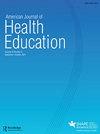Virtual Delivery of World Diabetes Day During COVID-19: Lessons Learned from the Field
IF 0.8
Q4 PUBLIC, ENVIRONMENTAL & OCCUPATIONAL HEALTH
引用次数: 0
Abstract
ABSTRACT Background Following the spread of COVID-19, the Rhode Island Department of Health delivered its first virtual World Diabetes Day (RIWDD) event. Evaluations exploring advantages and disadvantages of delivering public health events virtually are generally lacking. Purpose The aims of the present paper were to evaluate the reach, feasibility, and effectiveness of delivering RIWDD virtually. Methods Quantitative methods were used to: (1) estimate and compare the target population to RIWDD’s event reach; and (2) evaluate whether diabetes knowledge increased amongst attendees. Qualitative methods assessed event facilitators’ perceptions of the strengths, limitations, and challenges of using a virtual format to inform planning and implementation of future RIWDD events. Results Results revealed segments of RI’s population disproportionately affected by diabetes, including men, persons of color, and older adults were underrepresented at the event. The event was not associated with increases in diabetes knowledge; however, attendees possessed high diabetes knowledge overall. Facilitators identified several important factors associated with virtual delivery in the context of COVID-19. Discussion Considerations for delivering virtual events are discussed. Translation to Health Education Practice A key takeaway of this evaluation is the critical need for cultural competency as a guiding framework for professional practice when delivering events virtually.2019冠状病毒病期间世界糖尿病日虚拟交付:从实地吸取的经验教训
背景:随着COVID-19的传播,罗德岛州卫生部举办了第一次虚拟世界糖尿病日(RIWDD)活动。一般缺乏探讨开展公共卫生活动的利弊的评价。目的评价虚拟提供RIWDD的范围、可行性和有效性。方法采用定量方法:(1)估计和比较目标人群与RIWDD的事件到达程度;(2)评估参会者的糖尿病知识是否有所增加。定性方法评估了活动促进者对使用虚拟格式为未来RIWDD活动的规划和实施提供信息的优势、局限性和挑战的看法。结果:研究结果显示,男性、有色人种和老年人等受糖尿病影响比例过高的RI人群在活动中代表性不足。该事件与糖尿病知识的增加无关;然而,参会者的糖尿病知识总体上较高。主持人确定了在2019冠状病毒病背景下与虚拟交付相关的几个重要因素。讨论了交付虚拟事件的注意事项。这一评估的一个关键结论是,在进行虚拟活动时,迫切需要将文化能力作为专业实践的指导框架。
本文章由计算机程序翻译,如有差异,请以英文原文为准。
求助全文
约1分钟内获得全文
求助全文
来源期刊

American Journal of Health Education
PUBLIC, ENVIRONMENTAL & OCCUPATIONAL HEALTH-
CiteScore
1.70
自引率
10.00%
发文量
36
期刊介绍:
AJHE is sponsored by the American Association for Health Education of the American Alliance for Health, Physical Education, Recreation and Dance. The mission of the American Association for Health Education(AAHE) is to advance the profession by serving health educators and others who strive to promote the health of all people through education and other systematic strategies.AAHE addresses the following priorities •Develop and promulgate standards, resources and services regarding health education to professionals and non-professionals •Foster the development of national research priorities in health education and promotion. Provide mechanisms for the translation and interaction between theory, research and practice.
 求助内容:
求助内容: 应助结果提醒方式:
应助结果提醒方式:


